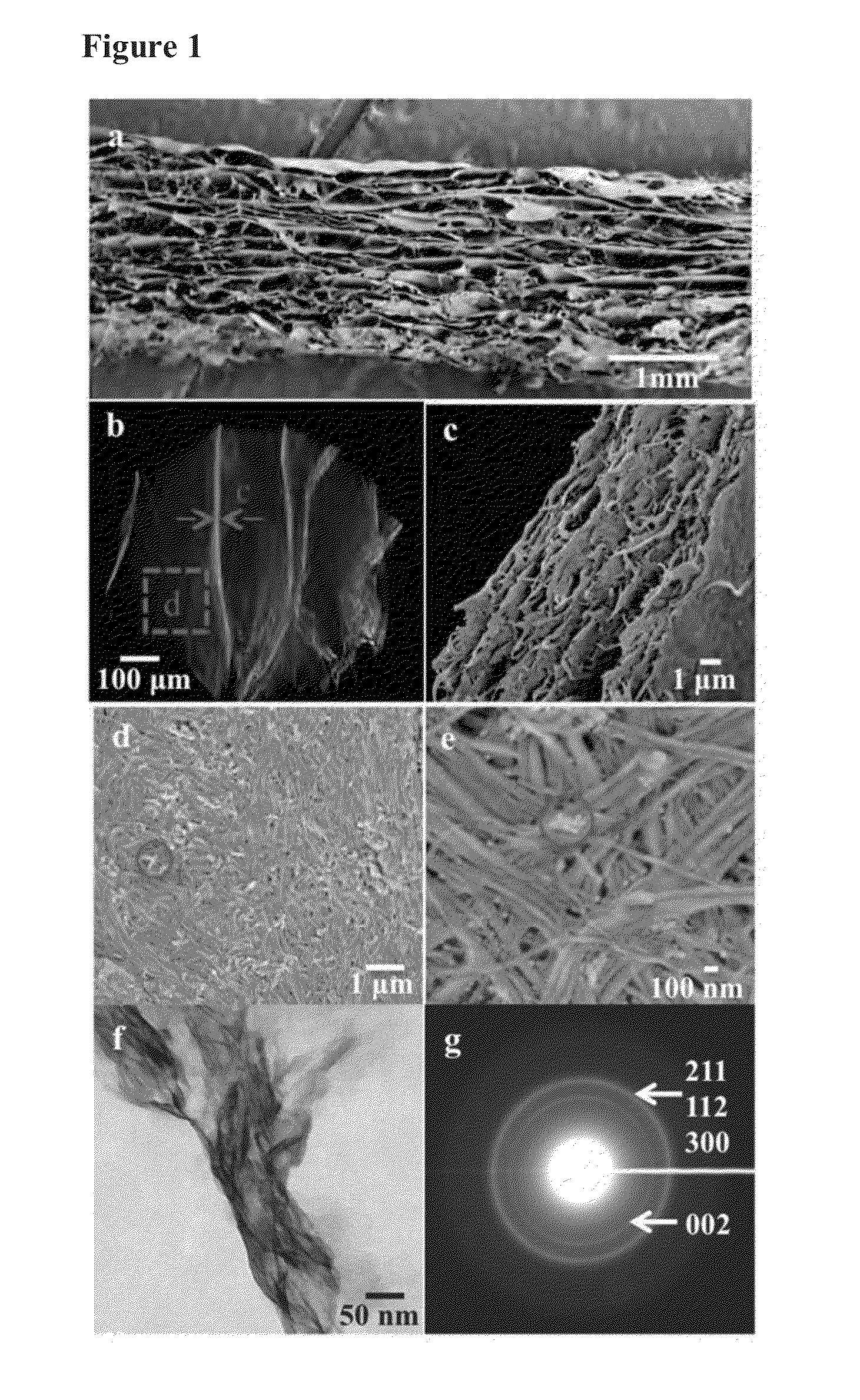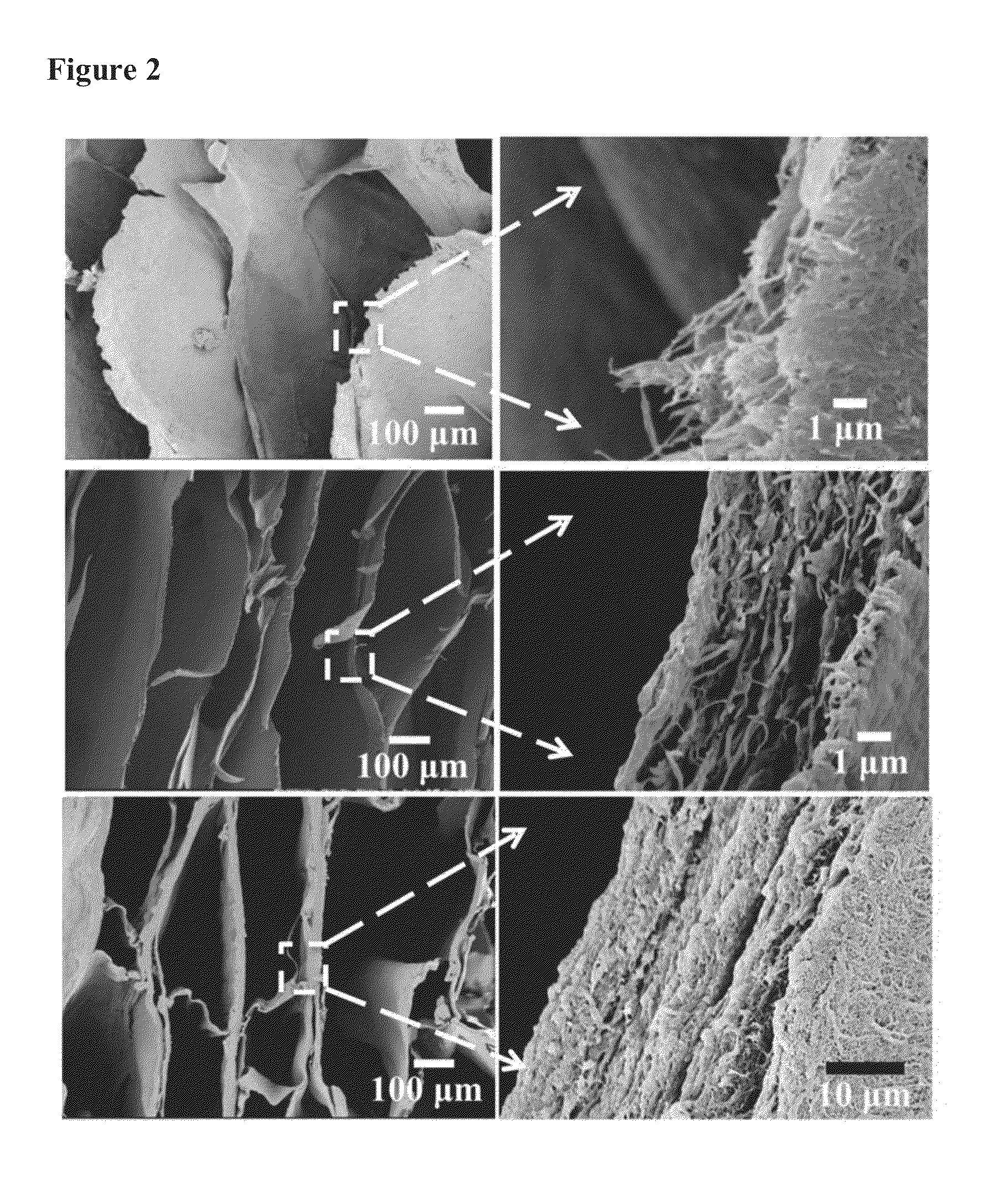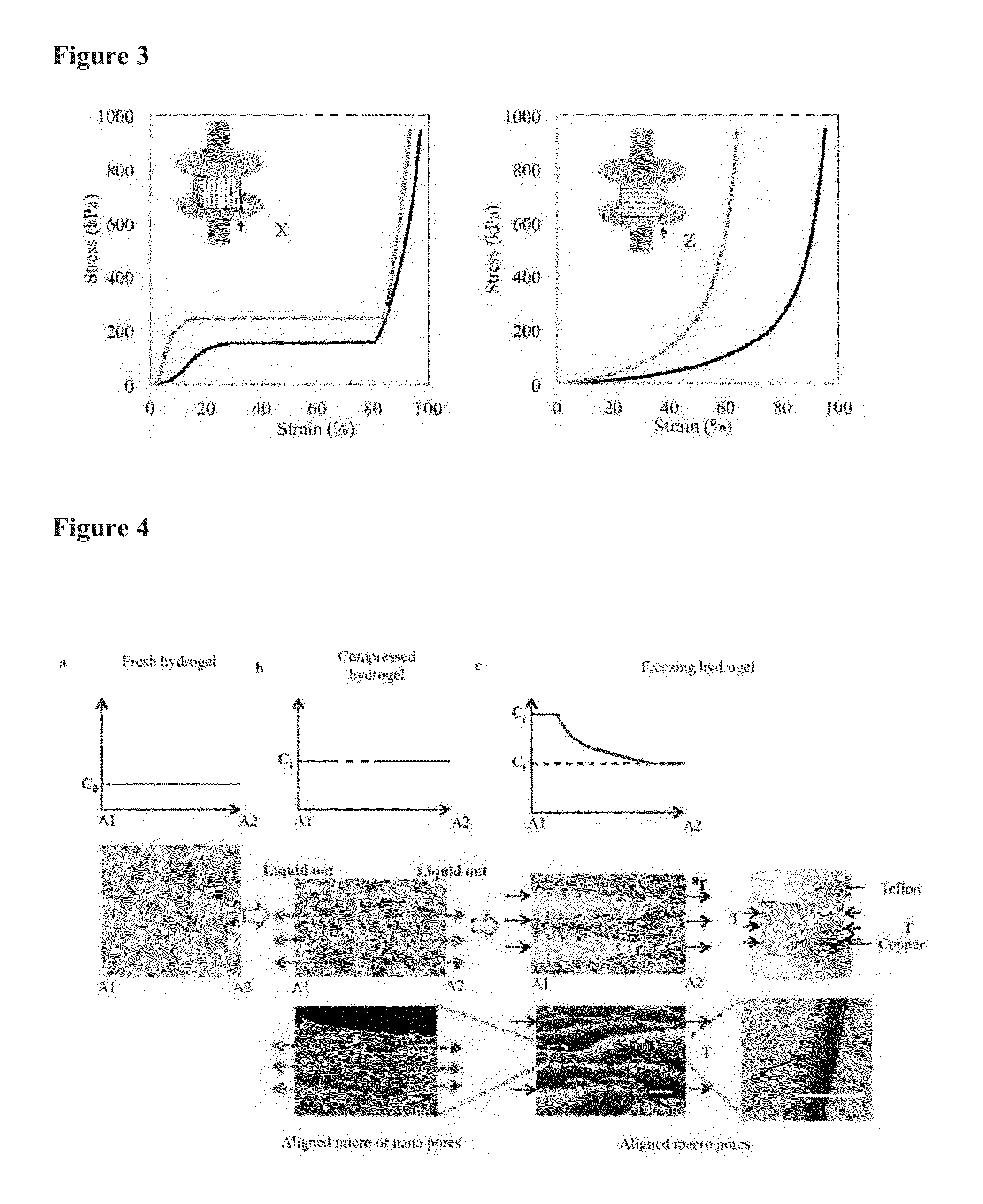Biomimetic scaffold for bone regeneration
a biomimetic and bone technology, applied in the field of tissue engineering, can solve the problems of poor mechanical strength, limited use in load-bearing applications, and low degradation rate, and achieve the effect of increasing the structural protein density of the hydrogel
- Summary
- Abstract
- Description
- Claims
- Application Information
AI Technical Summary
Benefits of technology
Problems solved by technology
Method used
Image
Examples
example 1
Preparation of and Characterization of Col-Ap Hydrogel
[0041]The biomimetic collagen-apatite hydrogel was synthesized using a collagen containing modified simulated body fluid (m-SBF; 109.5 mM Na+, 6 mM K−, 1.5 mM Mg2+, 7.5 mM Ca2+, 110.0 mM Cl−, 17.5 mM HCO32−, 3.0 mM HPO42−, 50 mM HEPES). The concentration of collagen in m-SBF was adjusted to 2 g / L to achieve an apatite content of 35% in the scaffold (wt %). The collagen concentration in the m-SBF can be tailored to provide scaffolds with different apatite contents. The pH of the m-SBF solution was adjusted to 7 by addition of HEPES (4-(2-hydroxyapatiteethyl)-1-piperazineethanesulfonic acid) and NaOH. The collagen-apatite hydrogel was prepared using a two temperature process. In this process, the solution was incubated in a sealed vial at 25° C. for 1 h, the temperature was then increased at a rate of 0.5° C. / min to 40° C. and left at 40° C. for 22.5 h.
[0042]The collagen-apatite hydrogel was allowed to undergo unconfined self-compr...
PUM
| Property | Measurement | Unit |
|---|---|---|
| temperature | aaaaa | aaaaa |
| freezing temperature | aaaaa | aaaaa |
| time | aaaaa | aaaaa |
Abstract
Description
Claims
Application Information
 Login to View More
Login to View More - R&D
- Intellectual Property
- Life Sciences
- Materials
- Tech Scout
- Unparalleled Data Quality
- Higher Quality Content
- 60% Fewer Hallucinations
Browse by: Latest US Patents, China's latest patents, Technical Efficacy Thesaurus, Application Domain, Technology Topic, Popular Technical Reports.
© 2025 PatSnap. All rights reserved.Legal|Privacy policy|Modern Slavery Act Transparency Statement|Sitemap|About US| Contact US: help@patsnap.com



